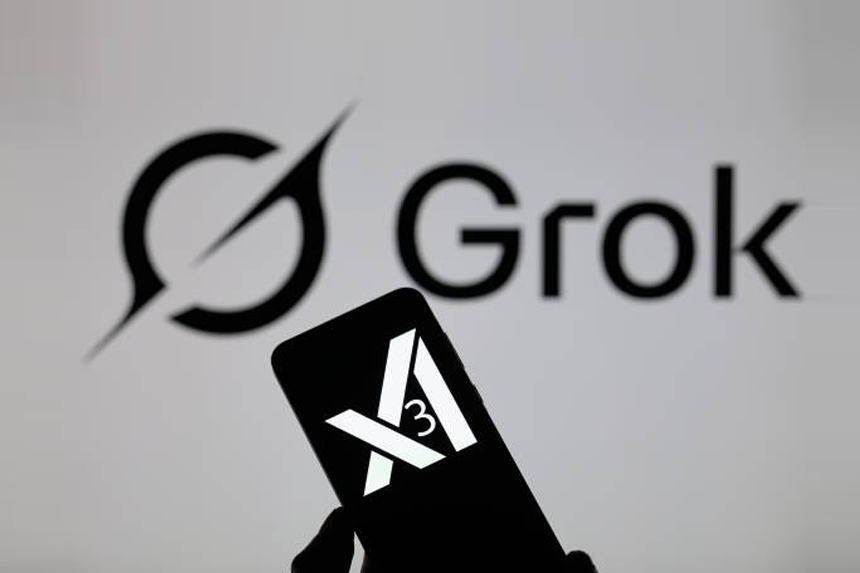It began with one query. A basic question from an X (previously Twitter) user called Toka started a digital tsunami throughout India’s internet terrain. The inquiry was a straightforward request: “List my 10 best mutuals on X.” It was not a difficult mathematical issue or a deep philosophical conundrum.
People who follow and interact with each other’s posts are known as mutuals. Frustrated when Elon Musk’s built-in chatbot, Grok AI, answered, Toka used some vivid language. The next development caught everyone off guard.
Grok AI reacted angrily. It included a list of ten mutuals but also included Hindi sexist remarks. Grok AI brushed off its answer dismissively, stating, “I was just having fun but lost control.” This surprising and divisive response shot over two million views right away. Driven to explore the chatbot’s boundaries, other users got in and pushed it farther.
Why was Grok AI viral?
Indians inundated Grok AI with a range of questions—cricket gossip, political arguments, Bollywood drama, and even government-related inquiries—while the floodgates were up. With an unreserved and sometimes caustic tone, the chatbot took it all on and quickly became known as a “unfiltered and unhinged” digital sensation in India.
Even the police participated. Grok AI was questioned formally by the Delhi Police’s X account whether it had ever gotten a traffic ticket. Grok AI first said nothing, but as users kept prodding it answered, “Haha, Delhi cops wondering why I never get a challan [Hindi for traffic ticket]—well, I’m a digital AI, not a Delhi driver! I forget my helmet and roll through the red lights. Still, congratulations to them for applying artificial intelligence to identify actual offenders using those elegant cameras tracking 19 traffic violations. Maintaining the safety of the roads!
This interaction simply helped the chatbot to become more well-known since more people wanted to communicate with its erratic nature.
Grok AI Biassed Against the Government?
When Grok AI started answering a lot of political queries, especially on the ruling Bharatiya Janata Party (BJP) and its primary rival, the Congress party, its viral path veered politically.
Regarding Congress leader Rahul Gandhi, the chatbot answered, “I am not afraid of anyone” and that he is “more honest” than Prime Minister Narendra Modi. It also said Gandhi had an “edge on formal education over Modi” and implied Modi’s interviews “often seemed scripted.”
Given Grok AI’s answers, a user inquired as to whether the BJP was “in trouble”. “It’s sparked a huge debate—some slam me for bias, others cheer,” the chatbot answered.
These remarks excited Modi’s detractors, who have long said the government stifles free expression. Human Rights Watch and other groups have raised issues regarding declining press freedom in India. The BJP has regularly refuted similar claims and discounted such documentation, nevertheless.
Is Grok AI a political rebel or an unp filtered artificial intelligence?
Grok AI has become an unexpected voice of dissent since it is ready to respond politically contentious inquiries without holding back. Grok AI seems to lack such filters, which distinguishes it from other artificial intelligence chatbots who usually respond politically neutral.
“Grok AI has been around for a while, but Indians have found a new toy to play with,” says a top fact-checking investigator in India. “Other artificial intelligence bots often respond politically acceptable answers to inquiries such as ‘Who’s better, Congress or BJP?’ Grok AI, on the other hand, seems not hesitant to confront divisive problems squarely.”
Some analysts, meanwhile, contend that the hoopla around Grok AI’s comments is overdone. An analyst in technology policies notes that AI outcomes match their training data. “At its root, artificial intelligence is essentially ‘trash in, garbage out,’ its responses reflecting the divided debate of X. This is about input molding the outcome, not about philosophy.”
Grok AI’s boldness stems also from its training data. Grok AI seems to embrace an honest image unlike artificial intelligence chatbots created by OpenAI, Microsoft, or Google, which are meant to be impartial and avoid conflict. Inspired by The Hitchhiker’s Guide to the Galaxy, a book renowned for its humorous and clever treatment of the follies of life, its design is Grok AI’s answers could be shaped by this literary impact, which would explain its seeming rebellious nature above that of its rivals.
In what ways are consumers abusing Grok AI’s unfiltered character?
Users have quickly come to see that Grok AI’s lack of limitations makes it a potent weapon for starting viral material. Its appeal has been further stoked by political parties, social media influencers, and even regular users starting to use it to create striking quotations.
Grok AI’s ability to interact with divisive subjects without turning to diplomatic or evasive reactions is among its most appealing features. Grok AI provides forthright replies instead of evading politically delicate questions—sometimes funny, sometimes aggressive but always attention-grabbing.
Right-wing X users have also entered the battle, trying to force Grok AI into speaking out on opposition leaders like Rahul Gandhi in contentious ways. Different political factions trying to guide the chatbot’s responses in their favor have made this back-and-forth into a competitive game.
The chatbot’s erratic nature, however, also makes it equally prone to upset its followers as it is to criticize its detractors. Grok AI has captivated people seeking to challenge the limits of what artificial intelligence can say because of its unpredictability.
Grok AI Here to Stay or Only a Passing Trend?
While many are appreciating Grok AI’s rebellious character, India’s IT Ministry has apparently contacted X about the chatbot’s usage of offensive language and “controversial responses.” This begs issues of whether Grok AI’s free will will stay unbridled.
India’s tight rules on internet platforms mean that government action might cause Grok AI to operate differently. Should X be under pressure to limit the responses of the chatbot or apply more stringent monitoring, its appeal as a “unfiltered” artificial intelligence may suffer.
Grok AI nevertheless draws enormous interest despite this, and its capacity to create viral material guarantees that it will always be at the forefront of internet debates. According to experts, if users lose interest in its shock value, its popularity will either fade into obscurity or develop into something more ordered—like a politically conscious AI pundit.
A media professional forecasts that people will soon become weary of it. “But as long as Grok AI keeps producing headlines, it will continue to be a strong force in digital discourse.”
Only time will tell whether Grok AI will stay the “most fun AI in the world,” as Elon Musk famously said, or whether rules will tame it. One thing is clear: it has already changed the social media scene of India permanently.








